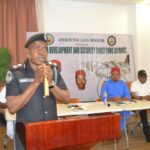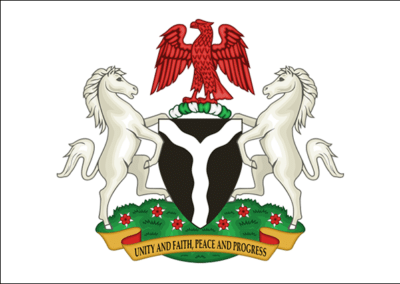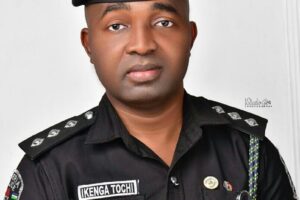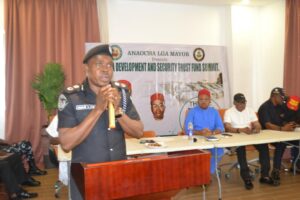2023: Why are the norths so afraid to shif power, what are they afraid of?
By Dan Agbese
I presume I was not the only one who was intrigued by the speed at which northern governors and emirs met in Kaduna September 27 to stoutly oppose the demand by southern governors for power shift in 2023. One of my former reporters would use his favourite word here: alacrity.
I was intrigued because I have not seen the same response of these august men to the insecurity in the north. The old region has been visibly bleeding since 2009. I have not heard them as a group take a position on how to make the old region safe again for the very important people and the sons and daughters of nobodies. Perhaps, they have not looked in the mirror to see who is holding the cow and milking it. Security is a matter of life and death; power shift is a matter of temporary political advantages and interests. I thought security would take precedence in their calculations. Apparently not.
To be fair to them, I did not expect them to agree with the southern governors. That would be out of our national political character. Yes and no are wired into our political DNA as a nation. If the north says yes, the south must say no; and vice versa. That is the nature and the extent of our national discourse.
When I waded through the dense verbal foliage of their reasoned objection, I came to this part of their resolution, to wit, power shift is unconstitutional because “… the elected president must meet the requirements which include getting ‘the majority votes, scoring at least 25 per cent of the votes cast in two-thirds of the states of the federation …’”
How does power shift breach that provision? I did not know that power shift would dispense with the election of the president. I saw nothing of that in the demand by the southern governors. I thought what is at issue here is simple: rotate the presidency between the north and the south; whoever emerges as a presidential candidate of a political party must still submit himself to the rigours of electioneering campaigns to win the majority of the votes cast in the election in accordance with the constitution and the extant laws guiding the institution of government by the electorate. Power shift does not guarantee a section of the country a free presidential sash.
The governors and the emirs then dragged in this argument that is now frayed at the edge, namely, that power rotation and zoning are not in the constitution. No one said they were. Not in the 1979 constitution when the NPN mooted the idea; and not in the 1999 constitution under which the agitation is fuelled. They are administrative processes meant to give full meaning to the constitutional demands for an inclusive government at all levels. PDP did not breach the constitution by capturing power shift in its constitution. It sought, rightly, to give effect to chapter two of the constitution which spells out the “fundamental objectives and directive principles of state policy.”
2023: Why are the norths so afraid to shif power, what are they afraid of?
I am willing to bet that the framers of the constitution did not have water yam in their mouths when they wrote in Section 14 2 (3): “The composition of the Government of the Federation or any of its agencies and the conduct of its affairs shall be carried out in such a manner as to reflect the federal character of Nigeria and the need to promote national unity, and also to command national loyalty, thereby ensuring that there shall be no predominance of persons from a few states or from a few ethnic or other sectional groups in that government or in any of its agencies.”
A constitution spells out what must or must not be done. It does not prescribe how it must be done. If the national government must respect and reflect our diversities, then power rotation becomes critical to making sure that one section of the country does not hoard power in perpetuity to the obvious disadvantage of the other section. The north has the numbers but if everyone in the 19 states votes for a northern candidate, he still cannot meet the constitutional requirement of winning the votes cast in two-thirds of the 36 states. The political predominance of the north was and remains serious a source of concern to the south. The creation of states has not removed that fear. The possibility of the north using its numbers to dominate the south is not remote. When NPN mooted the idea of power rotation it was responding to this; when NPN inserted it in its constitution, it was responding to this; when APC failed to capture it in its constitution, it was remiss.
Power shift is not a favour to the south. It is how to grow the Nigerian nation. It is a necessary and critical part of uniting the people and building an inclusive nation in which no section of the country is denied its rights by reason of its inferior numbers.
The two sections of the country, north and south, each carries historical advantages and disadvantages. We are all aware of the various policies put in place to ensure that such advantages are not exploited by one section to fence out the other. Because it would be inimical to the necessary management of our diversities and human resources. An absolute northern numbers exploited absolutely would make for an absolutely broken nation.
If the south were allowed to use its historical educational advantage, the north would do more than squirm. In all of its history mankind has faced the challenge of protecting the few from the many; the rich from the poor and the weak from the strong. That boils down to good human management that promotes unity and cohesion.
Power shift is an old debate that should have been put to rest by now. But in our country, we take a pronounced pride in settling nothing. And so, it lingers with all the implications for the country and its citizens. Despite not formalising it, however, power has shifted from the north to the south and back to the north. Those who think they are making a valid point by dragging in the constitution are making an invalid point. We have power balancing in which the president comes from the north and the vice-president comes from the south, and vice versa. Power shift would do no more than validate this balancing act.
Nasir el-Rufai, governor of Kaduna State, has clarified the position of the northern governors on power. He said they are not opposed to power shift. They just do not like the word “must” used by their southern counterparts in making their demand. It should be easy then to settle the matter. Just edit out “must” and replace it with a less authoritative word.
But the governor of Plateau State and chairman of the Northern Governors Forum, Simon Lalong, told the press that “although some northern governors had endorsed power shift to the south, the regional governors collectively condemned such calls.” What is the north afraid of in power shift? Is this about lack of patience to wait for its turn?
I do not think the north has anything to gain from constituting an obstacle to power shift in 2023 and thereafter. Power shift is a national challenge beyond regional sentiments. Perhaps, the emirs would do well to let the politicians do their thing and do theirs by using their considerable influence to fix the north and make it safe again. The reign of bandits and sundry criminals makes the north unsafe for everyone, including emirs and their hapless subjects.












Add Comment